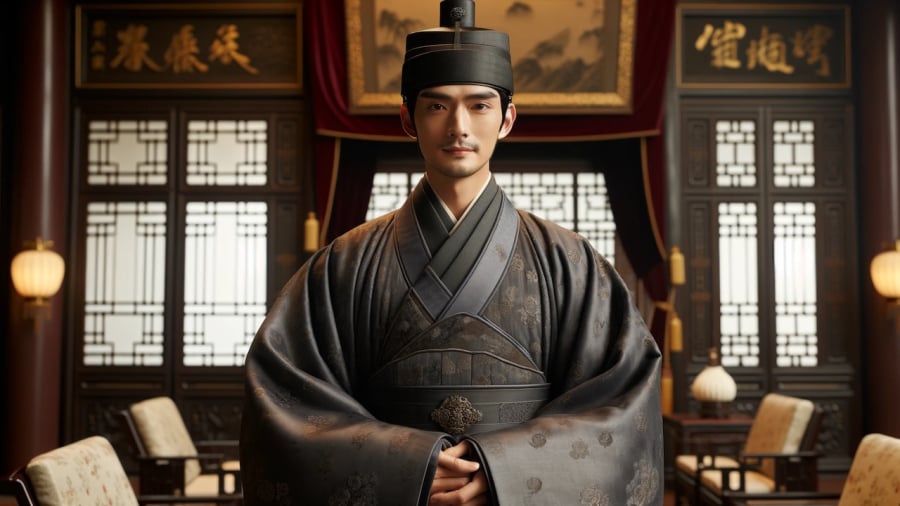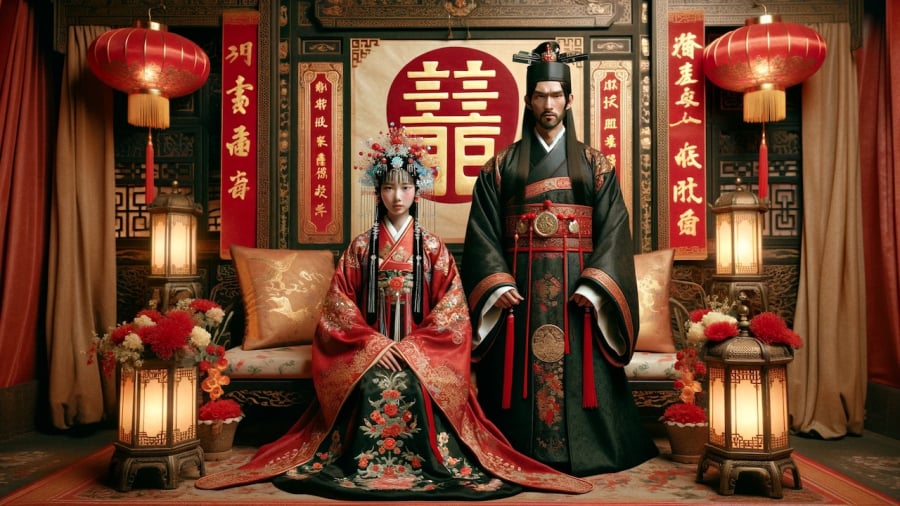Eunuchs are individuals who serve the emperor and the concubines in the palace. To become a eunuch, men must go through a painful process of castration, which also renders them unable to reproduce.
Usually, men who choose to become eunuchs are either criminals looking to reduce their sentences, local offerings, or volunteers seeking some form of reward to send back to their impoverished families in the countryside.

Why does the palace need eunuchs?
The reason for employing eunuchs in the palace is that certain arduous tasks cannot be assigned to the palace ladies, who may not be physically strong. However, due to the fear of the concubines having extramarital affairs with men, emperors mandated that eunuchs must undergo castration before entering the palace, ensuring that they no longer possess the ability to father children.
Additionally, during the feudal period, emperors often selected eunuchs as their close attendants instead of palace ladies. The first reason is that eunuchs can perform tasks that palace ladies cannot, such as standing guard. Emperors are often at a high risk of assassination if not adequately protected. In such cases, eunuchs with good health and agility are more capable of helping the emperor escape danger compared to palace ladies.
Secondly, eunuchs are more loyal to the emperor. Even if they have the ability to seize the throne, they are not acknowledged by the people, and it would be even more tragic for them if there were no successors.
Thirdly, eunuchs possess knowledge and understanding. Eunuchs who serve the emperor are intelligent individuals, well-versed in various fields, and have connections to high-ranking officials and the inner court. Therefore, when making decisions, emperors sometimes consult their close eunuchs for advice. Having served the emperor for many years, they can often anticipate the emperor’s thoughts when making decisions.
Despite their physical limitations and inability to have children like normal men, many eunuchs still take wives.

Three reasons why eunuchs want to marry:
Reward from the emperor
Some fortunate eunuchs are promoted and highly regarded by the emperor. Although serving the emperor poses great risks, they are rewarded with many benefits and have subordinates who must obey their orders.
When eunuchs perform their duties well, the emperor may reward them. The reward is often a beautiful woman or a palace lady. Even though eunuchs are different from regular men, palace ladies are still considered the emperor’s possessions, so they dare not resist.
Meet their own psychological needs
Despite their physical limitations, eunuchs still want to marry in order to satisfy their internal desires. Having their own woman helps ancient eunuchs feel comforted emotionally, similar to how a normal man would.
Have a companion at home
Marrying allows eunuchs to have someone to take care of them, have conversations with, and have a companion when they are older. In reality, only a few eunuchs become high-ranking officials alongside the emperor. The rest are ordinary eunuchs. If they cannot find a life partner, they will suffer greatly when leaving the palace and growing old.





































